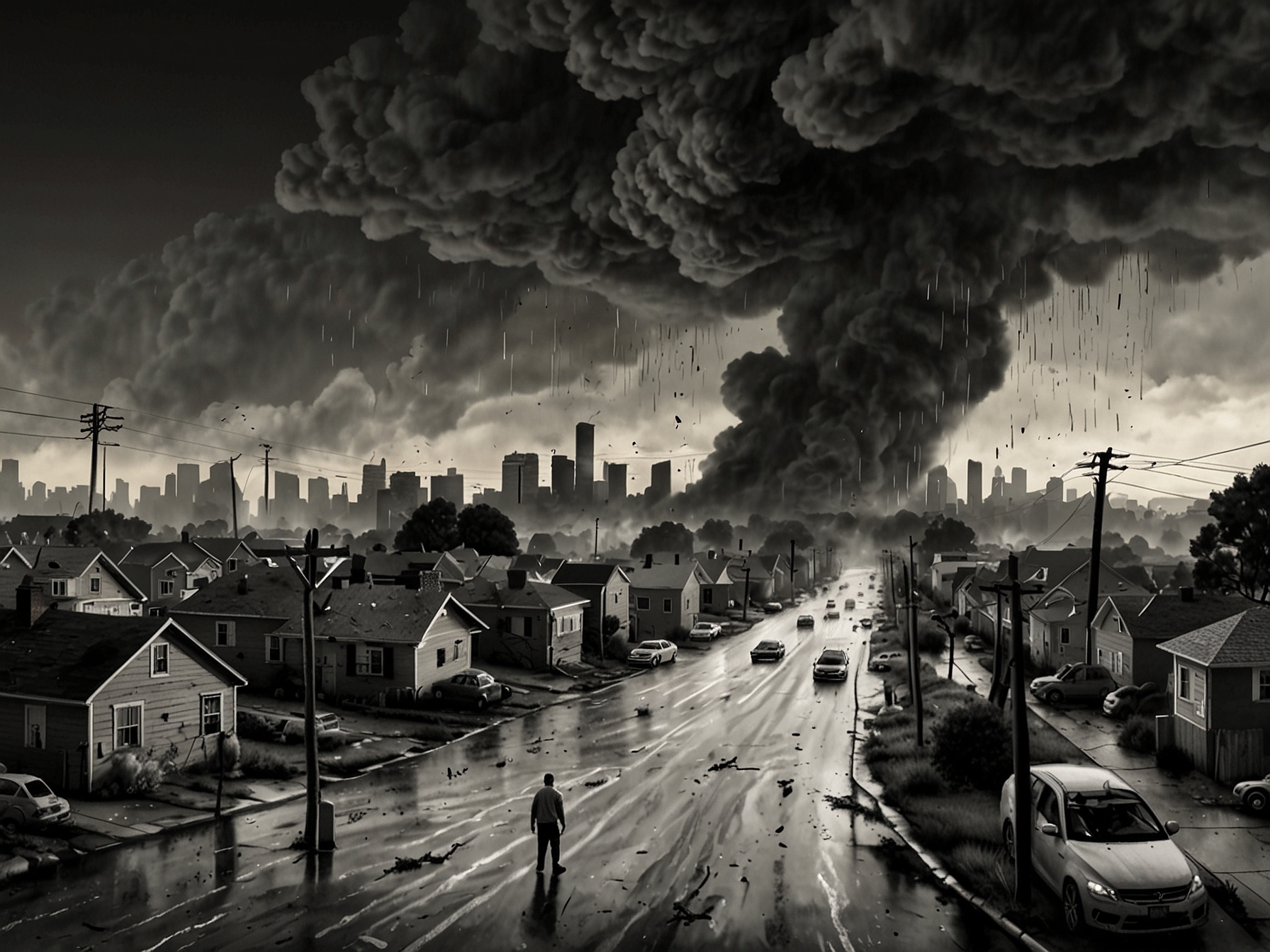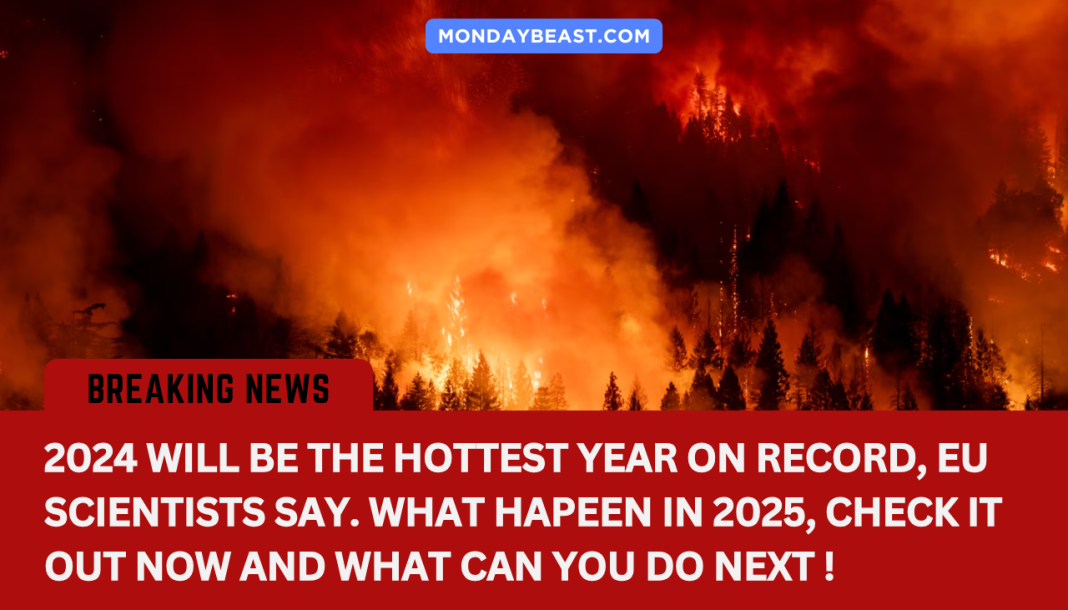What does it mean for our planet that 2024 will be the hottest year on record?
As temperatures soar, many ask how we got here. It’s a complex tapestry of data and decisions spanning decades. Global temperatures are projected to rise, exceeding the critical 1.5 degrees Celsius threshold. This alarming trend has significant implications.

The findings from the European Union’s Copernicus Climate Change Service (C3S) highlight not just statistics but also human reality. In November alone, temperatures were recorded at 1.62 degrees Celsius above preindustrial levels. This adds a fresh layer to the climate crisis we face.
Samantha Burgess from C3S voiced a sentiment shared by many. She said 2024’s records underscore how urgent climate actions need to be.
Is this just a statistic, though? What about the individual lives behind these numbers? Take those in San Francisco, where the city descended into a sweltering heatwave. As temperatures climbed above 80°F, it was more than numbers on a chart. It became human stories of discomfort and resilience.

Some people found solace while enjoying sunsets by Alte Donau in Vienna. Yet, others felt the oppressive heat outdoors, struggling to cope. Personalized experiences like these make the impact of climate change tangible.
Returning to the bigger picture, scientists warn that the pathway to limiting global temperatures is narrowing. Efforts made by nations, particularly through the Paris climate agreement, seem to falter. The deal aims to stabilize temperatures, but a single year above 1.5 degrees presents a challenge for long-term goals.
One can’t ignore the stark reality. November was just one month in a troubling pattern where average monthly temperatures have risen. Many wonder, is it too late to act? The data shows a concerning trend, raising questions of accountability and urgency.

The COP29 climate summit aimed to tackle these issues but failed to produce substantial agreements. Overall, global CO2 emissions continue to rise, leading to greater environmental challenges. How do we explain this disconnect between promises made and actions taken?
A sense of urgency fills the air. Extreme weather patterns reflect this crisis, with wildfires wreaking havoc in North and South America in 2024. The scale of destruction is unforgettable, from the Pantanal wetlands to Canadian forests.
Mark Parrington, a senior scientist, expressed that the extent of these wildfires this year is unprecedented. Indeed, it’s not merely a scientific observation; it’s a reality that impacts lives across continents.
As these fires burn, they create environmental havoc. Rising smoke levels have compounded air pollution problems globally. This serves as a reminder that climate change affects everyone, from urban residents to rural communities.
Moreover, the economic toll is staggering. A report from Swiss Re noted that losses from extreme weather reach staggering amounts. In 2024, those losses hit $320 billion, significantly higher than previous averages. What does this say about our preparedness for climate-related disasters?
Hurricanes and severe thunderstorms contributed to this financial burden. Insured losses are mounting, but what happens to those without coverage? It highlights gaps in society where those in vulnerable situations bear the brunt of such crises.
Are protective measures enough to mitigate these losses? Swiss Re asserts that investing in adaptation strategies is key. Solutions may include implementing dikes and floodgates. Such strategies can cost significantly less than repairs after disasters strike.
In summary, the predictions for 2024 paint a clear picture. It’s a year that emphasizes the urgency of climate action. Are we ready to confront this reality?
While statistics and scientific data are vital, the emotional narratives—our personal stories—connect us to this issue. As individuals, we can contribute to meaningful change. Can we shift our behaviors, our perspectives, and become catalysts for improvement?
Consider how you can play a role in combating the impacts of climate. Each small decision adds up. Whether through lifestyle choices, advocacy, or education, the time to act is now. In the face of an overwhelming crisis, every effort counts.




